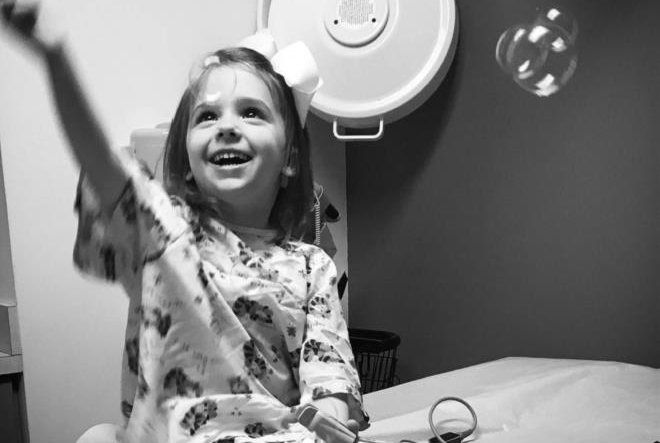Astrid was just 18 months old when her parents realized that her speech was delayed: she babbled and responded to sound, but wasn’t speaking or developing language as she should have. Despite speech therapy—and later a basic hearing test, which came back normal—Astrid’s speech didn’t improve. When one of her therapists suggested she see an ear, nose and throat specialist, her parents brought her to Weill Cornell Medicine. She was ultimately diagnosed with auditory neuropathy, a hearing disorder in which sound enters the inner ear normally, but the transmission of signals from there to the brain is impaired.
One of Astrid’s doctors, Dr. Michelle Kraskin, an instructor of audiology in clinical otolaryngology, compares the condition to trying to hear while underwater, or listening to a radio station that goes in and out of range. The little girl could make out some of what was being said, but the rest was garbled.
Happily, though, there was a clear course of treatment: the implantation of cochlear devices in both ears. At Weill Cornell Medicine’s and NewYork-Presbyterian’s Cochlear Implant Center, director Dr. George Alexiades, associate professor of clinical otolaryngology, suggested performing the procedures within six weeks of each another to minimize trauma. “When we activated Astrid’s first implant she was thrilled,” recalls her mother, Kimberley Chapman. “She almost immediately started asking us, ‘I get two magic ears?’” Now six, Astrid has made major progress in her recovery. She can carry on full conversations and is excelling in first grade in a specialized program; this year, her parents plan to move her to a mainstream school. The implants, Chapman says, “just opened up the world to her. We’re so grateful to science and to the doctors at Weill Cornell.”
This story first appeared in Weill Cornell Medicine, Vol. 17. No. 1

